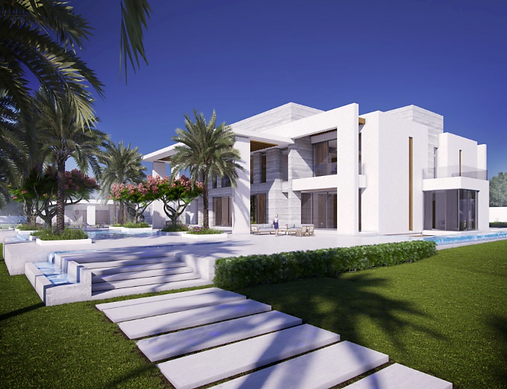Morocco
Have you ever considered buying property or even moving to Morocco? Well probably not! For most of us, Morocco is considered somewhere to explore for a more adventurous holiday but too far, too hot and particularly too different from our established lifestyle and customs to consider actually living there.
So let's debunk those myths, answer those doubts and explain why investing in Morocco is the best thing you will ever do and the most financially rewarding too.

Investment Opportunity
There are now very few hidden property hotspots in the world in which to invest. With growing global affluence, even idyllic far flung destinations are lined with expensive villas. Then there is the resentment to foreign investors in much of Southern Europe, further afield and even at home.
Morocco, however has always been a destination for the adventurous traveller, including film stars looking for that exotic getaway, but until recently never a property hotspot.
As a host country for the FIFA 2030 World Cup, Morocco has seen significant recent infrastructure development and a political desire to attract foreign investment. This has led to numerous development projects around the major cities, away from the historic centres, and the additional of shopping, leisure and health facilities to match.
With a huge selection of prestigious properties offering unbelievable value, a low cost of living compared to Europe and a steady exchange rate, now is the time to invest.





Cultural Experience
Morocco is a vibrant country that blends various cultures, including Berber, Arab and European influences. This cultural diversity is reflected in the local cuisine, festivals and daily life. Due to it's geographic location, many regard Morocco as the perfect mix of Europe, Africa and the Middle East. It's enough like home so you don't feel completely out of place but different enough to be interesting.
Modern Morocco whilst retaining its historic cultural significance, now adds enough 21st century facilities and amenities to bridge the gap between old world charm and modern world necessities. From designer boutiques to upscale restaurants offering high-end European offerings, and Moroccan classics with a modern twist, all tastes and budgets are adequately catered for.
Landscape and Climate
Located in the northwest corner of Africa, bordered by the Atlantic to the west and Mediterranean to the north, Morocco boasts a diverse landscape, characterised by mountain ranges, deserts and coastal areas, making it a unique geographical area.
The Atlas Mountains are a prominent feature of Morocco, providing a natural barrier that separates the coastal regions from the arid interior and contains Mount Toubkal, at 4,167m, the highest peak in North .Africa.
To the south of the Atlas Mountains lies the vast Sahara desert, whilst in contrast, the Gharb Plain between the mountains and the western coast is fertile and produces most of Morocco's agricultural products,
Morocco's climate varies significantly due to it's diverse topography. The coastal areas experience a Mediterranean climate, while the interior has a more continental climate. The southeast is arid with limited rainfall, while the northwest benefits from more moderate weather conditions. This climatic diversity supports a range of ecosystems, from lush valleys to dry deserts.







People and Cuisine
Moroccans are predominantly of Arab and Berber decent with the Berbers, the indigenous people of North Africa making up around one third. Over the centuries, various groups have also contributed to the Moroccan identity, making it a melting pot of cultures. The people embody a rich and diverse heritage and greatly value hospitality. Modern Moroccan society is increasingly influenced by global culture.
The primary languages are Arabic, Berber and French due to historical ties, with English spoken in urban centres.
The same mix of cultural interactions have also fueled the diversity of Moroccan cuisine. While the traditional dishes such as tagine, tanjia, pastela, couscous and sardines are found everywhere, modern Morocco also has incorporated the best of European dishes, often incorporating them with the skilful use of local spices.
The Practicalities
Safety - Morocco is generally safe for visitors, but like everywhere, it is best to exercise caution and be aware of potential risks, including petty crime and cultural differences. Tourism is growing at an incredible rate and the level of security is upgraded every year.
Visas - UK residents with a valid passport can visit Morocco for up to 90 days for whatever purpose without a visa. To obtain a resident visa, allowing you to stay permanently (visa length), you must meet fairly straightforward eligibility criteria such as criminal records checks and proof of financial means as well as satisfying health criteria. For those looking to retire in Morocco fairly modest financial income such as a UK pension is required. The simplicity of obtaining visas for UK citizens makes Morocco an attractive option, though the administrative process can be lengthy.
Banking - It is necessary to have a Moroccan bank account in order to obtain a resident visa. Using an multi-currency bank such as Wise, will ensure you can transfer funds received in GBP to local Dirhams or Euros easily without incurring unnecessary fees and charges.


